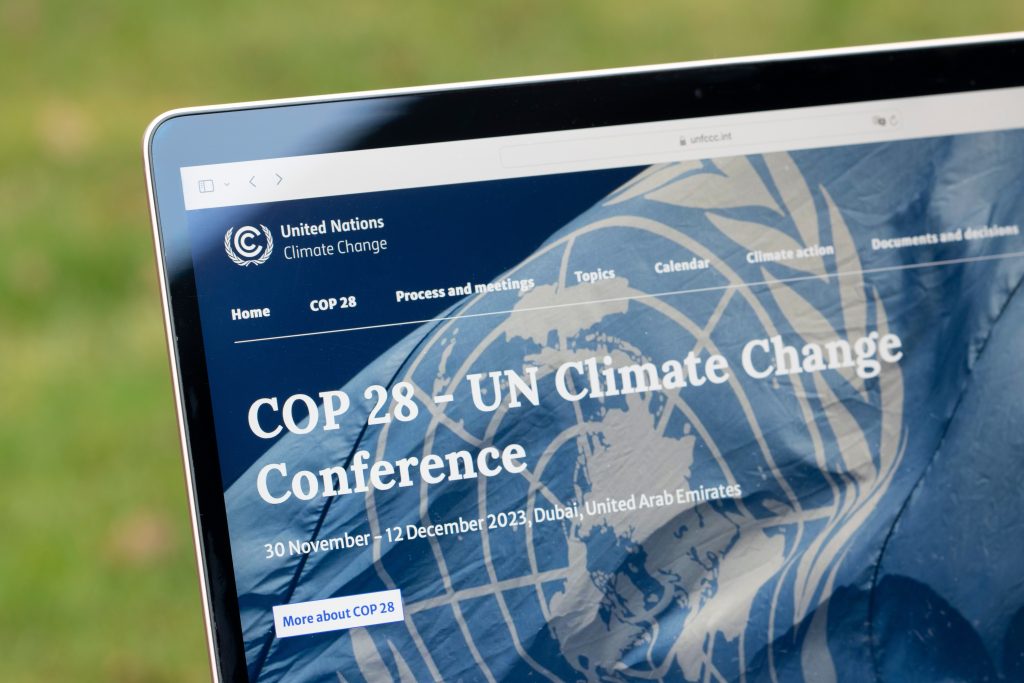As global temperatures escalate, the Arab region finds itself at the vanguard of climate change mitigation efforts. The battle to achieve net-zero emissions presents distinctive challenges that intensify the need for urgent action to secure the region’s future prosperity.
With the Gulf region experiencing some of the most severe impacts of climate change, due to its already high temperatures surpassing global averages, Middle Eastern countries are increasingly focusing on the economic implications of this global phenomenon to prevent dire outcomes.
Significant events like MENA Climate Week in Riyadh in 2023, the UAE’s COP28 in the same year, and Egypt’s COP27 in 2022 have been pivotal in demonstrating the region’s dedication to climate-related challenges.
Sal Jafar, CEO of ESG MENA, spoke about the transformative progress GCC countries are making in energy transition and climate initiatives, highlighting the shift from hydrocarbon reliance to environmental stewardship through an ESG framework.
The interplay between climate change and economic stability in these nations emphasizes the critical need for sustainable development practices. The Arab Monetary Fund warns that by 2050, the region could face significant reductions in water availability and agricultural productivity, potentially incurring economic losses up to 14 percent of their total GDP due to climate-related water scarcity.
Saudi Arabia, a major oil producer, is embracing its role as a leader in the region’s transformation. Yousef Al-Shammari, CEO of CMarkits, a UK-based energy research consultancy, pointed out that the Kingdom has proactively pursued energy transition efforts for over a decade.
Initiatives began with the establishment of the King Abdullah City for Atomic and Renewable Energy in 2013, with the objective to reduce domestic crude oil consumption in light of increasing demand from electricity and transportation.
This region, historically reliant on hydrocarbon economies, is now at the forefront of a pivotal shift toward sustainability and environmental stewardship, underpinned by an ESG framework.
Sal Jafar, CEO of ESG MENA
Amidst rising demand for crude oil, projected to reach 8 million barrels per day against a production of 10 million barrels, Saudi Arabia faces an ‘economic security risk’. This has spurred the nation to prioritize energy efficiency as a core motive.
Furthermore, with escalating environmental concerns, Saudi Arabia launched its Vision 2030 in 2016, aiming to become a pioneer in clean energy and reduce oil dependency.
The country’s initiatives towards a lower carbon footprint and a diversified economy include ambitious goals such as capturing 44 million tonnes of CO2 annually by 2035. The circular carbon initiative, presented during Saudi’s G20 presidency, encompasses strategies to remove, reduce, reuse, and recycle carbon emissions.
Highlighting Saudi Aramco’s role, Al-Shammari referenced a major project set to begin in 2027, which is expected to be the world’s largest CO2 capture endeavor, aiming to capture 9 million tonnes of CO2 per year by 2027, and increasing capacity to 44 million tonnes per year by 2035.
In 2022, the Kingdom’s sovereign wealth fund launched its regional Voluntary Carbon Market company, allowing tradable CO2 credits to be exchanged, with major energy players participating. The voluntary nature of this market is seen as more effective than mandatory markets in other regions, encouraging companies to reduce carbon emissions through economic incentives.
Strategically positioned at the juncture of three continents, Saudi Arabia is poised to lead in renewable energy exports. Ambitious projects include exporting clean ammonia and building the world’s largest green hydrogen project in NEOM, thus enabling the Kingdom to supply mass renewables to global markets.
Al-Shammari emphasized that as European countries look toward green hydrogen production, Saudi Arabia is expected to be a key supplier due to its cost advantages. ACWA Power, a Saudi energy company, currently operates the world’s largest green hydrogen storage facility, with significant export potential to Europe.
These concerted efforts are redefining Saudi Arabia’s global image, transitioning from a traditional oil exporter to a diversified energy leader.
